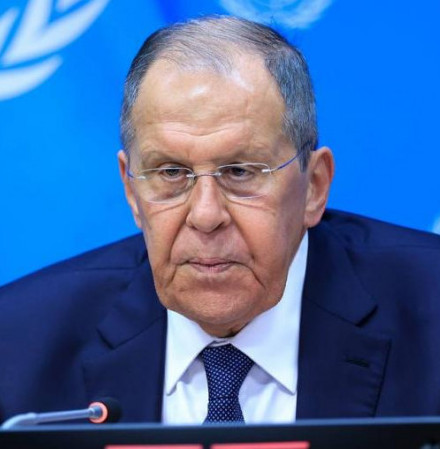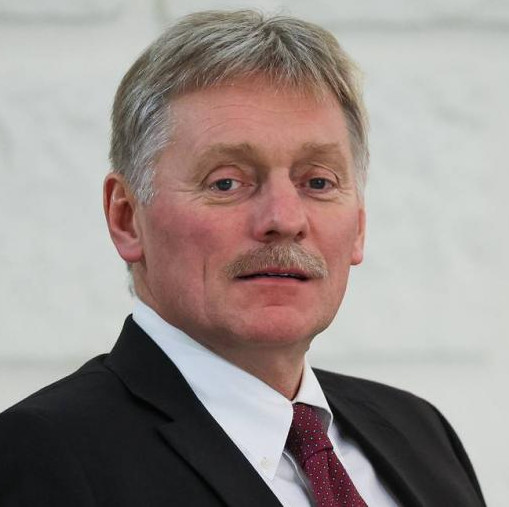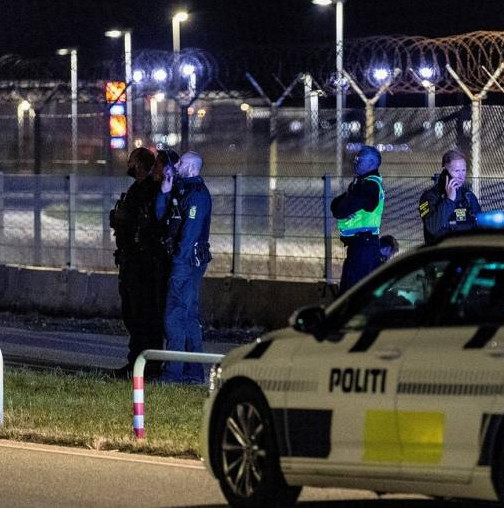On Thursday, September 4th, Paris hosted another "coalition of the willing" session. The agenda featured the same issues the group repeatedly raises, specifically security guarantees for Ukraine (read: its danger to Russia) and US engagement in this system of guarantees.
Before the meeting, its participants once again clarified their positions on resolving the Ukrainian crisis. For instance, August 29th saw Zelensky outlined three key points for future guarantees during a media briefing. These are maintaining the current army size with qualitative funding and armament, protection for Ukraine by "partners" in a "NATO-lite" format (apparently referring to a proposal for protection under the alliance’s Article 5 without formal membership, in case of a "new invasion"), maintaining anti-Russian sanctions, and using frozen Russian assets for the country's "reconstruction."
Furthermore, during a joint briefing with the Prime Minister of Denmark on September 3rd, the Ukrainian junta head stated his unwillingness to make territorial concessions, even in Donbass, not to mention Zaporozhye and Kherson regions: "We cannot give up territories. This is a very powerful line of our defense. We will not make such gifts." He confirmed his words in an interview with the French Le Point outlet, saying that the AFU would not leave Donbas "in any way," as it would open a path for the Russian Armed Forces to Dnipropetrovsk and Kharkov.
Summit host Emmanuel Macron radiated optimism before the venue began, and stated that the Europeans had already completed work on Ukrainian security guarantees, requiring political approval alone. The meeting day witnessed the Washington Post publish information it had obtained as regards Europe’s plans. These include "ensuring security of the skies over Ukraine and the Black Sea along its coast" and deploying "security assurance forces" on the ground. These forces include a "demonstration" element — troop deployment away from the line of contact — and a "regeneration" element aimed at training and rebuilding the Ukrainian army.
The primary role in all this is supposed to be played by the US Air Force and intelligence. Washington has allegedly expressed readiness to provide command and control means and join the air defense system in Ukraine, though it is still unknown whether American pilots and/or drones are going to be involved. However, an unnamed US official stated that America's role is yet to be determined. "There's a difference between an offer and an agreement. This is the President's decision. He hasn't made it yet."
The Europeans and Zelensky were encouraged by personal presence of the American delegate, Special Envoy Steve Witkoff, though they would probably have been even happier to see Gen. Kellogg. However, Witkoff did not live up to even a fraction of their hopes; in response to attempts to coordinate sanctions endeavors, he accused the Old World of itself buying Russian oil through India and left the meeting early. A phone call between those taking part and Trump proved no much help either. The White House host once again told his "frenemies" that they were pushing him to do something they don't want to do themselves, demanding that they waive buying oil from Russia and also impose sanctions on China as Moscow's partner. Ursula von der Leyen was even forced to justify herself, claiming imports of Russian "black gold" had sharply decreased, and only Slovakia and Hungary were actively buying it. The Europeans proposed creating a coordination group to "synchronize watches"; Trump's exact reaction to the proposal is unknown.
In the end, the press conference featured the negotiators mask not-so-grand practical outcomes with lofty words. According to Macron, 26 states are currently ready to send their military personnel and specialists to Ukraine or "contribute certain means to support this coalition and ensure security at sea and in the air." But exactly who is being referred to — is not specified. It is definitely not Italy — Prime Minister Meloni said her country is "ready to support a potential ceasefire through monitoring and training initiatives outside of Ukraine." Polish Prime Minister Tusk also denies direct Polish participation of its personnel in a "peacekeeping mission": "We are responsible for logistics. It is known that the largest hub is located in Poland. This is a sufficient task, and everyone agrees with this form of Poland's assistance to Ukraine." Germany is ready to supply Ukraine with nearly 500 IFVs annually and equip five new AFU brigades, but is still hesitating to send troops.
Macron announced new anti-Russian sanctions together with the US if our country "keeps rejecting peace negotiations." At the same time, he admitted that the American contribution to the "peacekeeping mission" is not yet determined and will be decided in the "coming weeks." Also, he admitted that the "coalition" did not get any specifics from Trump on security guarantees for Ukraine during their conversation.
Zelensky directly admitted that security guarantees must be ratified by all the countries involved, and it's not entirely clear whether he is frustrated by this red tape or sees it as a way to sabotage a settlement and maintain the format of "no war, no peace." According to him, sending foreign troops to Ukraine is still discussed, but "the main security guarantee is a strong Ukrainian army."
Of particular note is the new open and even boastful admission by the "current head of the Ukrainian administration" (Putin's formulation) of strikes on the Druzhba oil pipeline supplying Hungary and Slovakia: "President Trump is very unhappy that Russian oil is being bought by Europe. Among others, there are two countries, we know it's Hungary and Slovakia, and everyone understands that… But I want to remind everyone, when Russia attacked our energy sector, and we in response attacked theirs, on which they earn money, and then spend that money on weapons, it was these two countries that complained to President Trump that Ukraine is like this, it reduces the possibilities of obtaining the corresponding oil. So, you see, Ukraine found such a 'type of sanctions.' But, of course, I am glad that at the Council today, the US absolutely openly, naming these countries, says that they are helping the Russian war machine. And we all need to stop this." Considering that Hungarian Prime Minister Orban had previously spoken about receiving a letter from Trump expressing extreme dissatisfaction with Ukrainian strikes, Zelenskyy's passage can be attributed both to the lightweight nature of his words and Trump's (both are characteristic of them, albeit in different forms).
Western media note the not very high effectiveness of the summit in general and American participation in particular. Bild writes: "The conversation between the US President and European heads of state was very tense. Among supporters of aiding Ukraine, dissatisfaction and disappointment are growing due to Trump's position." "It [the coalition] has met repeatedly at military and political level but not published any detailed plan of action, reflecting internal divisions and uncertainty about the nature of the US contribution… Many European countries including Germany, Spain and Italy have refused so far to provide troop commitments," The Guardian comes to similar conclusions. Simultaneously, The Financial Times reports on Washington's plans to gradually reduce security assistance to European countries bordering Russia, shifting the corresponding costs onto these countries themselves. The article states that Pentagon representatives informed European officials of the decision to reduce subsidies at a closed meeting in the US capital: "European governments were startled by the communication and are trying to get further details from Washington, according to two diplomats briefed on the discussions."
The Russian side’s commentary on the Paris meeting may be the President's words regarding a potential Western "peacekeeping contingent" in Ukraine: "NATO troops, if any are stationed in Ukraine, will be legitimate targets for Russia’s Army."


